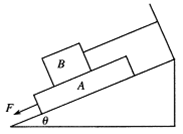Decisions, decisions! Our lives are full of them, from the small ones to the life-changing. The right to choose is central to everyone. Yet sometimes we make bad decisions that leave us unhappy or full of regret. Can science help?
Most of us know little about the mental processes that lie behind our decisions. Luckily, what psychologists(心理学家)are finding may help us all make better choices. Here are some of their amazing discoveries to help you make up your mind.
Consider your emotions. You might think that emotions are the enemy of decision making, but in fact they are a part of it. Whenever you make up your mind, your brain’s emotional centre is active. University of Southern California scientist, Antonio Damasia, has studied people with damage to only the emotional parts of their brains , and found that they were unable to make basic choices about what to wear or eat. Damasia thinks this may be because our brains store emotional memories of past choice, which we use to help the present decision-making.
However, making choices under the influence of an emotion can greatly affect the result. Take anger, for example. A study by Nitika Garg of the University of Mississippi and other scientists found the angry shoppers were more likely to choose the first thing they were offered rather than considering other choices. It seems that anger can lead us to make quick decisions without much thinking.
All emotions affect our thinking and motivation(动机),so it may be best to avoid making important decisions under their influence. Yet strangely there is one emotion that seems to help us make good choices. The American researchers found that sad people took time to consider the various choices on offer, and ended up making the best choices. In fact many studies show that people who feel unhappy have the most reasonable view of the world.
小题1:According to the text, what may help us make better decisions?
A.To think about happy times.
B.To make many decisions at a time.
C.To stop feeling regretful about the past.
D.To learn about the process of decision-making.小题2:What does the underlined word “central” mean?
A.中心的
B.中央的
C.起决定作用的
D.后悔的小题3:Damasia’s study suggests that ________.
A.emotions are the enemy of decision making.
B.our brain has nothing to do with decision making.
C.people with physical damage find it hard to make up their minds.
D.our emotional memories of past choices can affect present decisions.小题4:Why are angry shoppers more likely to choose the first thing they are offered?
A.They often forget their past choices.
B.They make decisions without much thinking.
C.They tend to save time when shopping.
D.They are too angry to bargain.小题5:What do we learn from the text?
A.Emotions are a part of decision-making.
B.Sad people always make worse choices.
C.No emotion seems to help us make good choices.
D.Only sad feeling affect our thinking and motivation.
 的斜面上放一木板
的斜面上放一木板 ,重为
,重为 ,板上放一重为
,板上放一重为 的木箱
的木箱 ,斜面上有一固定的挡板,先用平行于斜面的绳子把木箱与挡板拉紧,然后在木板上施加一平行斜面方向的拉力
,斜面上有一固定的挡板,先用平行于斜面的绳子把木箱与挡板拉紧,然后在木板上施加一平行斜面方向的拉力 ,使木板从木箱下匀速抽出,此时,绳子的拉力
,使木板从木箱下匀速抽出,此时,绳子的拉力 . 设木板与斜面间的动摩擦因数
. 设木板与斜面间的动摩擦因数 ,求拉力
,求拉力 的大小.
的大小.

 整体为研究对象,受力分析如图,
整体为研究对象,受力分析如图,
 ,
, ,
,

 的斜面上放一木板
的斜面上放一木板 ,重为
,重为 ,板上放一重为
,板上放一重为 的木箱
的木箱 ,斜面上有一固定的挡板,先用平行于斜面的绳子把木箱与挡板拉紧,然后在木板上施加一平行斜面方向的拉力
,斜面上有一固定的挡板,先用平行于斜面的绳子把木箱与挡板拉紧,然后在木板上施加一平行斜面方向的拉力 ,使木板从木箱下匀速抽出,此时,绳子的拉力
,使木板从木箱下匀速抽出,此时,绳子的拉力 . 设木板与斜面间的动摩擦因数
. 设木板与斜面间的动摩擦因数 ,求拉力
,求拉力 的大小.
的大小.

 整体为研究对象,受力分析如图,
整体为研究对象,受力分析如图,
 ,
, ,
,
